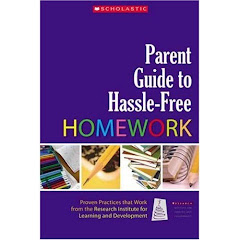The following is an article that was posted this week at various sites including ezinearticles.com and goarticles.com:
Teachers and parents need to stop being secretive with children about reading. We need to let them know what we expect. We need to let them know what they are doing right as well as what they are doing wrong. We need to stop assuming that children know what we know.
I have always loved to read, even as a child. I never thought much about how to do it—I just did it. Only when I attended graduate school classes to obtain my Masters in Reading, did I really think about the “how” of reading. To my horror, I realized that I had not been using best practices to reach the struggling readers that I encountered. The more classes I took, the more I lamented about my past teaching strategies.
I realized the following:
I did not use valid assessments to determine the reading level, strengths and weaknesses of my students.
I did not really know my students as readers. In other words, I could not tell you what they did right and what they did wrong.
I did not adjust my teaching to the individual needs of my students.
I did not use appropriate reading text with all of my students. I was more concerned about the standard I was teaching than the instructional level of the text.
To rectify my mistakes, I now do the following:
I use a diagnostic reading assessment (running record with comprehension questions) to determine both the independent and instructional reading level of the child as well as reading strengths and weaknesses.
I use flexible grouping (by level, skill, or strategy use) in my classroom. I attempt to meet with the lowest group EVERY day.
I make sure that students are aware of their reading level and set goals for improvement. I conference regularly with each student in my classroom.
In my class, we discuss both word decoding and comprehension strategies on a regular basis.
When I focus on standards, I try to provide a variety of reading text to meet the needs of the individual students.
I provide opportunities for shared reading daily (everyone has access to the reading text and is able to participate as they can).
I read aloud to my students daily, modeling good reading behavior.
I use the phrase, “That is what good readers do” on a regular basis to reinforce what students are doing correctly as readers.
I no longer feel like I am “shooting in the dark” when I work with my students. By knowing their reading level, strengths, and weaknesses, I am able to plan lessons that will allow them to grow as readers. I now realize that it is essential that I make sure the students also know this information so that we can set goals to improve their reading. When we work together and there is parental involvement, it is amazing how much progress ALL students are able to make!
Education Sites to visit:
http://astore.amazon.com/scberrysblog-20
http://scberry.carlmarl.hop.clickbank.net/
http://scberry.jceved.hop.clickbank.net/
http://scberry.robot27.hop.clickbank.net/
Subscribe to:
Post Comments (Atom)


1 comment:
Just another suggestion to help with parental involvement. I have my children do 20 minutes of required reading at home works wonders with reading levels. You could also take it one step further and have them summarize what they just read to check their comprehension. Because if they are just reading words and it not mean anything to them this to me is failed reading. This is also one part of that dratted state standards test. In my state anyway.
But, yes, it is hard for them to know what to expect out of them if you don't tell them. And that goes without saying for anything. If a child doesn't have direction we can't really expect them just to jump in and do it especially if we have goals for them that they know nothing of.
Communication is the key to everything.
Post a Comment